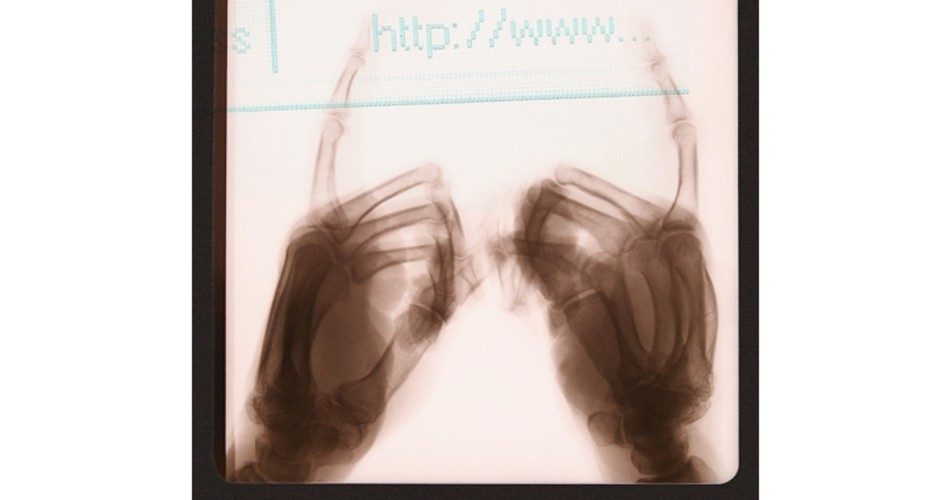
Nearly one-quarter of CGI Group’s $1.3 billion in revenues last year came from the U.S. government, which included $90 million to build the ObamaCare website, Healthcare.gov. Unfortunately, overruns have taken that number up to $112 million, and could exceed $196 million by the time the website is fully operational and functioning properly as was promised back in October.
Cost overruns aren’t unusual for CGI, or for several other information technology (IT) companies assisting with the website, including Seedco and Verizon Communications. As noted by Jennifer Hickey, writing at Newsmax.com, each of these “received contracts despite having histories of failure, fines and even fraud allegations” in previous work done for the government. It appears that, once hired, IT companies stay hired, regardless of their performance.
Seedco, one of the IT contractors working on the ObamaCare website, had dispersed federal funds for New York City, designed to create jobs during the recession. A whistleblower brought to light that Seedco had inflated the number of jobs it had created, in order to meet the terms of its contract. The New York Times first exposed the Seedco fraud in the summer of 2011, and in December 2012, Seedco agreed to pay $1.7 million to the federal government for falsely claiming to place some 1,400 New Yorkers in jobs.
This was just three years after Denver’s decision to terminate a similar contract with Seedco for failing to meet its job-creation goals. It suffered the indignity of a public exposure of its inability to perform by Denver auditor Dennis Gallagher, who wrote: “It seems to me that, three years into the relationship with the city, Seedco performs as if it were a start-up rather than the effective and efficient entity it is supposed to be. Three years is a long time to get geared up to do work.”
Computer Sciences Corporation (CSC), another Healthcare.gov IT firm, paid nearly $100 million to settle a class-action lawsuit over making “false or misleading statements or omit[ting] to disclose material facts” over its financial reporting on a $5.4 billion electronic records contract with the United Kingdom’s National Health Service earlier this year. In its annual report, the company took a $1.5-billion writedown on that contract, and in the process noted also that the Securities and Exchange Commission (SEC) was investigating the company for certain “accounting issues.”
In another government contract, CSC was supposed to deliver to the IRS its Electronic Fraud Detection System by January 2005. In October 2004, the IRS became aware that it would not be ready, and so decided to use its existing system for the 2005 filing season. CSC promised that it would be ready for the 2006 filing season but failed again. But by that time it was too late to put the old system back in service and so neither system was used that year, resulting in the IRS issuing fraudulent refunds of more than $300 million. When Sen. Chuck Grassley (R-Iowa), then chairman of the Senate’s Committee on Finance, learned about it, he was livid about CSC’s performance:
The IRS continues to rely on a contractor that for the past two filing seasons couldn’t deliver what it promised and accepted $20.5 million to deliver! Because of this contractor … the IRS lost as much as $320 million [of taxpayers’ money] over this botched project. That’s money down the drain.
The Telemark division of Verizon Communications, which is developing software for the Health and Human Services (HHS) agency, has been cited for 24 instances of misconduct in performing under its contracts, according to the Project on Government Oversight (POGO). It has just paid $93.5 million to settle allegations that it overcharged the General Services Administration for its services under those contracts.
The primary contractor, CGI, continues to fumble. It was awarded two government contracts to disburse funds to victims of Hurricane Sandy. Nearly a year after the storm hit the New Jersey coast, only half of the 24,000 families who applied for aid to repair their homes had received any money.
Between 2009 and 2013 the government has awarded CGI nearly $700 million under 185 separate contracts, despite its continued inability to perform. For instance, in 2011 it failed to deliver software designed to implement an online medical registry for the Canadian province of Ontario, and the contract was cancelled after 14 months of delay. In 2009, CGI was tasked to overhaul the information technology systems for Hawaii’s tax department, but that ended after a scathing report from Hawaii’s Officer of the Auditor noted that it failed to perform as promised, and then received “$15.2 million from new collections without first completing deliverables from the [previous] contract.”
The state of Vermont hired CGI to implement its health exchange but is now considering whether to impose penalties on the company for failing to meet more than 20 deadlines prior to its launch.
Once a contractor has gained access to the internal workings of government agencies, it appears nearly impossible to get rid of the contractor despite poor performance. As Bill Allison, an investigator with the Sunlight Foundation, a watchdog group in Washington, explained: “Once you’ve got your foot in the door, even if they don’t do a great job, you end up getting relied upon because the government has no one else to turn to.”
A graduate of Cornell University and a former investment advisor, Bob is a regular contributor to The New American magazine and blogs frequently at www.LightFromTheRight.com, primarily on economics and politics. He can be reached at [email protected].



